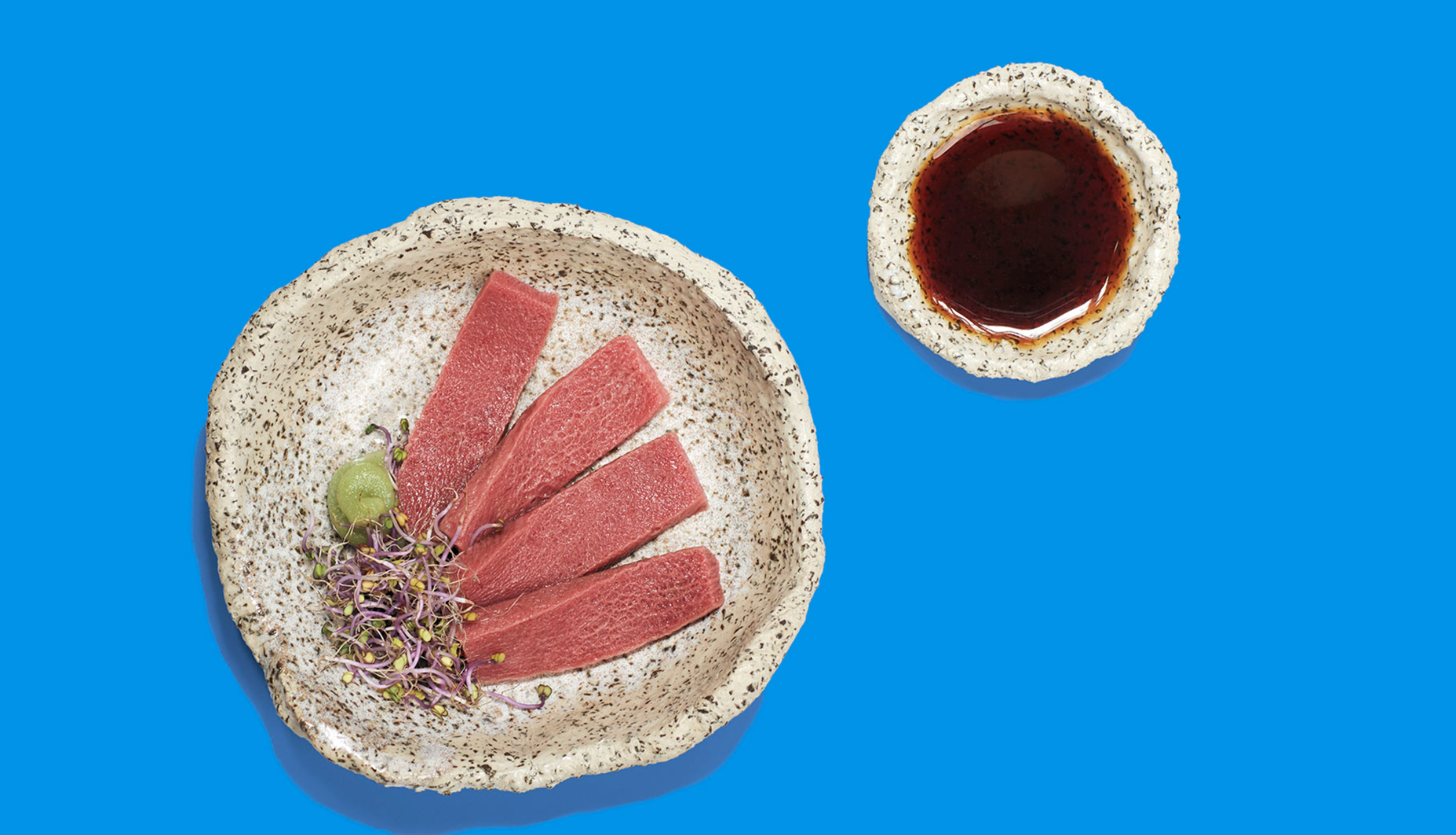Y Combinator’s Kuleana is making an animal-free substitute for raw tuna
Companies like Impossible Foods and Beyond Meat that are making vegetable-based meat substitutes have captured the imagination and wallets of consumers, but so far, there's been no real corollary for the seafood industry.
Now, a startup coming from Y Combinator's summer cohort, Kuleana, is hoping it can swim in those waters.
While new businesses like Wild Type, Finless Foods, and Shiok Meats are all developing cell-based alternatives to using live tuna, salmon, and shrimp and Good Catch and Ocean Hugger are proposing their own tuna replacements, but Kuleana hopes to differentiate itself by replicating sushi-grade raw tuna.
And that's only the beginning, according to Kuleana co-founder and chief executive, Jacek Prus. Eventually, the company hopes to be making vegetarian alternatives to tuna, salmon, and more fish and shellfish.
Nobody has really done raw tuna very well yet," says Jacek Prus. We're going to do raw tuna and then probably salmon."
Prus became interested in the food industry after taking an animal ethics class at the University of Texas at Austin. After five years in the city, Prus moved to Europe and helped set up the ProVeg International incubator.
It was there that Prus got in touch with Ron Shigeta, a longtime researcher, technologist and entrepreneur in the food science space who previously worked as the Chief Science Officer at IndieBio. Shigeta put Prus in touch with the Barcelona-based food science researcher Sonia Hurtado and the three launched Kuleana (Shigeta has since left the company).
The food accelerator experience gave Prus, a lifelong meat eater before college, a grounding in alternative proteins and led to the thinking around how to develop a more flavorful fish alternative.

Sample product from Kuleana. Image Credit: Kuleana
Kuleana's tuna is made using iron and algae oil and a mix of different proteins, and forming them in a proprietary way, Prus said. Using an initial EUR50,000 in seed funding from Good Seed Ventures, Kuleana is developing a scaffolding that will enable the company to recreate the taste and texture of raw fish, without using 3D printing techniques (which Prus said could make the product look and taste cooked").
To get to market Kuleana is reaching out to a number of sushi chefs at restaurants around the country, because the first target is, in fact, restaurants.
What we found is that 60 percent [of seafood] is eaten out of the home, and with raw seafood that's significantly higher," said Prus. We're doing it heavier on the food service route."
Within the year, Kuleana may be appearing in some stores as a tuna alternative in sushi rolls and poke bowls at a price that Prus said is already competitive with higher grade tuna loin.
Kuleana already held two successful taste tests in Barcelona and San Francisco and the company boasted in a recent note to investors that there were letters of intent for orders of over 50,000 pounds of the company's vegetarian tuna substitute.
The taste of tuna isn't the hardest part... It's the texture," says Prus. [Competitors] are formatting their process through extrusion and it will not work. I'm confident that what we're doing with the biotech might be one of the best approaches out there."